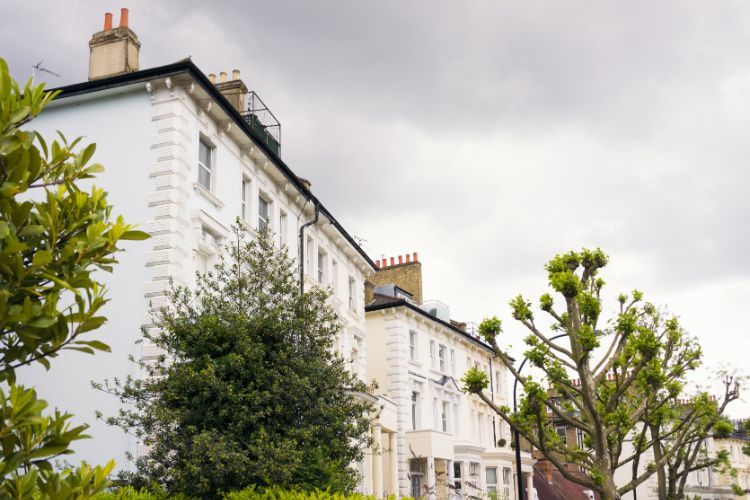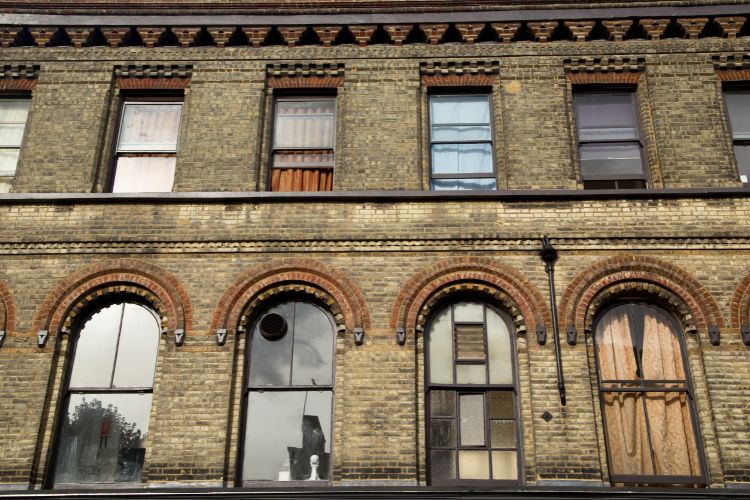Schedule of Condition when Leasing a Property
What is a Schedule of Condition?
A schedule of condition acts as a detailed record of the condition of a property at the time the lease is granted. This document serves as a benchmark against which the condition of the property can be assessed at the end of the lease. It includes both written descriptions and, in many cases, photographic evidence, highlighting the state of repair and condition of the premises. Your landlord will issue a Schedule of Dilapidation if you’re responsible for repairing or covering the costs of damages.
What does a Schedule of Condition detail?
- The building’s overall condition
- Structural defects, such as timber issues and dampness
- Human-made defects, such as damaged plaster or paintwork
- Materials used
- Roof structure
- Wall coverings
Do I need a Chartered Surveyor to prepare a Schedule of Condition?
If you’re a tenant, our RICS Chartered Surveyors can review the terms of your landlord’s Schedule of Condition, allowing you to sign the lease with your eyes open and avoid being held responsible for damages unnecessarily or unfairly.
For landlords, we can prepare a Schedule of Condition on your behalf using our decades of experience and in-depth industry knowledge. We’ll survey your building inside and out both before and after the lease term, ensuring your tenant meets their obligations.
Without a Schedule of Condition, tenants expose themselves to unnecessary repair costs that should be the landlord’s responsibility. Similarly, landlords must prepare a detailed Schedule of Condition to ensure tenants honour the lease terms. If you need help preparing or reviewing this critical yet often overlooked document, contact our highly experienced Chartered Surveyors.
At Harding Chartered Surveyors, we can protect both landlords and tenants in London against financial loss by drafting and reviewing accurate Schedules of Conditions. In the process, we’ll help both parties agree on fair terms and understand the consequences of noncompliance.
Schedule of Condition Quote
To get a quote for a schedule of condition, please select "Other Services" and then "Schedule of Condition"

Why Do Tenants Need a Schedule of Condition?
For tenants, the importance of having a schedule within a lease is paramount. The schedule of condition can limit a tenant’s repairing obligations to the condition recorded at the start of the lease. Without this, tenants might be unfairly charged for disrepair or dilapidations that existed before their tenancy began. Especially when the property is in a poor state at the lease commencement, a detailed schedule can protect the tenant's interests.
Employing our Chartered Surveyors to review your landlord’s Schedule of Condition lets you:
- Protect yourself against false claims from landlords
- Gauge a building’s condition before signing the lease
- Prevent unnecessary legal disputes
- Understand the terms of your lease and your obligations

Importance of Having a Photographic Schedule of Condition
Photographs offer undeniable proof of the property's condition at the start of the lease. A photographic schedule of condition acts as photographic evidence, showcasing the exact state and extent of the property, offering an irrefutable record should disputes arise.

Why Do Landlords Need a Schedule of Condition?
While tenants primarily require the schedule for protection, landlords too gain from its inclusion. Having an agreed record of the property's condition at the time of lease commencement can prevent disputes at the end of the lease. Moreover, it offers clarity on the tenant’s repairing obligations, ensuring the property is maintained appropriately.
By hiring our RICS Chartered Surveyors to prepare a Schedule of Condition, you can:
- Gauge your property’s overall condition
- Protect yourself against financial losses
- Ensure your tenant respects your lease terms
- Hold the right people responsible for any damage
Party Walls Schedule of Condition
A party wall ‘schedule of condition’ is simply a snapshot in time of the Adjoining Owners property. Party wall surveyors will visually inspect a neighbouring property's walls, floor and ceiling surfaces. Often, visible parts of the external building envelope are also scheduled. Where a property has a garden, the gardens are sometimes scheduled in addition. The extent of the areas will depend on the scope of the ‘notifiable’ works being carried out. For example, the basement of a four-storey building is unlikely to be scheduled if the ‘party wall works’ solely comprise repairs to a roof parapet next door.
Harding's View
"There can be numerous reasons to carry out a schedule of condition. It provides a point of reference of the condition of a property, at a given date.
The Schedule of Condition could be undertaken at the commencement of a Lease or otherwise before nearby building work starts. It protects the owner or occupier of the property where the schedule of condition is being undertaken. A point of reference exists, if later building works cause damage. It also protects the instigator of the building works as It can lessen the risk of spurious claims of damage.
On the basis that a schedule of condition needs to be undertaken, the adjoining owner is contacted to ask if access can be afforded to their property. The current address as detailed on the H. M. Land Registry is usually used. It is therefore important for property owners to keep their Land Registry entries up to date and if need be, they can update the property entry with a revised address for service. Some more recently conveyed properties, whose records are held with the H. M. Land Registry provide an email address for such purposes.
If, for whatever reason, an adjoining owner does not allow access to their property for a schedule of condition to be undertaken, a schedule of condition can be undertaken from the public highway. Usually where an owner does not provide access for whatever reason, then the owner concerned is written to again, to clarify and generally confirm that they would not be able to substantiate any claims of damage if the damage occurred in a location that had not been accessed as part of the schedule of condition. This can sometimes act as an incentive for a property owner to provide access to their property.
It is also not unheard of for properties to be tenanted, and for tenants not to pass on written correspondence addressed to their landlord or to the property freeholder to the named recipient of those letters. This goes back to the earlier comment about ensuring that Land Registry entries are kept up-to-date. Otherwise, it is feasible to have a permanent redirection of mail. This is so that an owner will always be forwarded mail that is addressed to them at a property which they own.
If the instigator of building works is concerned about a specific property or the condition that it is in, then they could seek their own advice about whether a site-specific insurance policy is appropriate. It could cover potential risks such as third-party claims of damage. Insurance advice would need to be sought from a specialist. Most Chartered Surveyors do not have appropriate insurance to cover advice on insurance related matters.
Provided correspondence is issued to relevant owners in a way where postage can be verified, then the instigator of building works has been reasonable in offering a schedule of condition.
Sometimes schedules of condition are offered for ‘neighbourly’ reasons. Even if the Party Wall etc., Act 1996 does not apply to those proposed works. This may be the case if deep excavations are proposed, and those excavations have a ‘zone of influence’ which could affect nearby properties. This is more likely to be the case on larger schemes with numerous storeys below ground, or schemes involving tunneling. In other words, the offer of a Schedule of Condition is made, to be neighbourly.
We are sometimes asked whether Statutory Undertakers, such as gas, water, and electricity companies, are obliged to compile schedules of condition, if they are excavating for trenches, cables, or other infrastructure below ground. Usually, statutory undertakers have a dispensation from needing to serve notice under the Party Wall Act., 1996 to nearby property owners, for excavations in proximity to nearby structures.
However, if specific criteria arise on a project (an example I could give is if there is a Heritage Asset such as a sizeable Brick wall nearby of a certain vintage) then there is nothing stopping a nearby property owner approaching the Statutory Undertaker concerned, and agreeing with them, whether a schedule of condition would be a prudent exercise in order to protect both owners’ interests. It would be between the property owner and Statutory Undertaker concerned to agree the scope of any schedule of condition and who pays for same.
In most instances the statutory undertakers do not own the land that they are excavating, but have a right to lay infrastructure, on or under it. This does not therefore make them an ‘Owner’ as defined by the Party Wall Act and, negates the need for them to have to serve Notices under the Party Wall Act on Adjoining Owners."Key Takeaways:
- A schedule of condition is an indispensable part of both commercial and residential property leases.
- It offers a benchmark for assessing the property's state at the lease's end.
- Tenants benefit from protection against unjust charges, while landlords gain clarity on the property’s maintenance.
- Engaging a professional surveyor is advisable for accurate documentation.
- Photographic evidence provides undeniable proof of the property's initial state.
- Costs can vary based on property size, condition, and other factors.
- Always ensure your schedule is properly annexed and referenced within your lease.
If you’re about to embark on a lease journey, either as a landlord or tenant, get in touch with a professional to help prepare a comprehensive schedule of condition for your peace of mind.
Recent Reviews from Harding Chartered Surveyors

How to Ensure the Validity of Your Schedule of Condition?
To ensure your schedule remains valid and dispute-free:
- Ensure it’s referenced and annexed within the lease agreement.
- Have both the landlord and tenant sign the schedule.
- Engage a reputable surveyor for its preparation.
Discuss your Schedule of Condition with us Today
If you have any questions about the Schedule of Condition or want to know how our independent Chartered Surveyors can help you, don’t hesitate to contact us on 020 3598 6730 to speak with a qualified surveyor directly. We’ll gladly arrange a free consultation at a time that suits you. If you are looking for a survey or need a Chartered Building Surveyor, please click here for more information. Our Chartered Surveyors would be more than happy to assist you with your enquiry.
Navigating the complex waters of both commercial and residential leasing, the schedule of condition stands prominently as an essential tool. When the lease is granted, it offers a comprehensive snapshot of a property's state. Wondering about its significance in both realms? Read on to understand its pivotal role and how it protects all parties involved in a lease agreement.